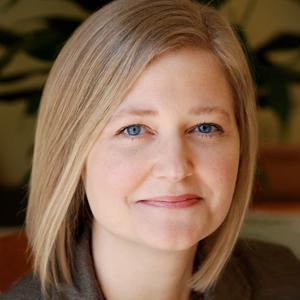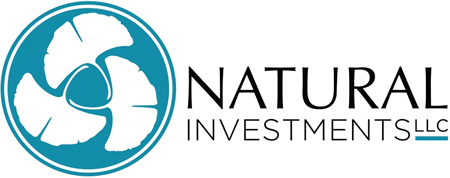From Noble Poverty to My Brand of Joy
by Carrie B. VanWinkle , CFP®, Natural Investments
From Noble Poverty to my Brand of Joy
The first 40 years I lived a life of noble poverty. When I heard the term “noble poverty,” I had a visceral reaction in my heart and my gut. I felt deeply understood. I experienced a relief of having named a condition I had lived with since I was a child.
Mikelann Valterra, Founder of the Women’s Earning Institute, has defined noble poverty as “the belief that there is virtue in not having money and that good people do not have it.” People with this mindset live by the phrase “it is better to be good and poor than rich and evil.” Now I understand that this mindset is based on a false dichotomy that you can have one or the other, and not both. That a person does not need to live a life of scarcity and deprivation and that these are not the same as mindful simplicity and living in a conscious intentional relationship with money.
I have uncovered a lot of my unconscious ideas about money, including a deeply ingrained belief around noble poverty. I’ve done my own growth work to have a friendly, healthier, and conscious relationship with money, taking my money story on a new path of deeper authenticity.
I was raised in a devout Catholic family in a small rural town in Kentucky. My parents got pregnant just out of high school and had me when they were both 19. We lived in a blue collar environment where they worked hard and made a sweet little home for me and my two siblings. Still, it always felt like we were just barely getting by.
I learned that money and power are tightly interwoven. I watched my parents struggle with money, and these conflicts were enmeshed with power and control for many years in their marriage. Then, when I was 14, they went through a rough divorce, which continued to be a struggle around power and money and control.
While my parents were my first teachers of money and power, the authority of church was an important teacher in shaping my belief systems. I was a loving and earnest child and had a strong belief in what I was being taught in church. I wanted to be a good person and I took the lessons taught in church to help me understand how to be good.
The church, probably more than anywhere else, had some very clear messages to teach me about money. What I remember hearing taught many times about money included: “You cannot serve both God and money.” And “The love of money is the root of all evil.” And the most memorable for my child mind: “It is easier for a camel to go through the eye of a needle, than for a rich man to enter into the kingdom of God.” I took these to heart and they strongly influenced how I felt about money, what makes a good person, and how I should be doing my work in the world.
I see now that how I brought in money was as much as part of my money story as how I then chose to spend it or save it.
Money first came to me though gifts and small jobs. Brushing my grandmother’s hair meant 10 cents. A birthday card might include a five dollar bill. Being an experienced babysitter for my younger sister, as soon as someone would pay me to babysit for them, I was off and earning my own money. Then when I was 16, I started working at a local video & record store, and began to experience another level of freedom and independence. An example of this is that I started doing my own tax returns from the first one at age 16.
I put myself through college, often working 2-3 jobs, which included Subway sandwich making, grading exams for my sociology professor, and working as a cashier in the college grill. Even in those jobs, I connected to purpose and meaning and took pride in doing the work well. I was also connecting with my sense of purpose to help create positive change for a healthy environment and served as a leader in environmental groups on campus.
I was taking out as much in student loans as they would offer me. I was young and a part of the first generation to be subjected to student loan debt at new levels. I didn’t really grasp the consequences. I just knew in the short term that I had to pay for the upcoming semester. I didn’t feel like I had another choice.
There has always been a drive in me to do work that felt meaningful, which meant work that felt like it was having a positive impact on people. I was learning about Buddhism from a close friend who was a devoted practitioner, and the teachings about Right Livelihood resonated with me. While I loved my accounting class in high school, it didn’t appeal to my idealism as a young college student. I also didn’t see myself fitting in with the business and finance students. So I decided to major in my other loves: psychology and anthropology.
This led me down a path of working in social services, then getting my Master’s in Social Work, working with refugee and immigrant families, creating trainings on community building and community change, and many years in nonprofit leadership.
I found myself in my early 30s teaching financial literacy and learning much about the subject as I was teaching it. I realized I needed to start a retirement account (my job at a small grassroots nonprofit didn’t provide any benefits at the time). I had read about socially responsive investing options and somehow found an SRI mutual fund company where I could open my first IRA.
I was discovering a love for personal finance and how powerful it could be to help someone change their relationship with money for themselves, their kids, even future generations, while also being able to influence bigger systemic changes.
After continuing to expand my work in personal finance through my nonprofit leadership work, I was heading toward 40 with a plan…to retire. I felt that a significant change was coming.
I had begun to do personal development work that had helped me realize I was living so much of my life from shoulds. What I should be doing to be a good person. What I should be doing to be able to help people and make the world a better place.
After living almost 40 years from a mindset of noble poverty, I had realized that I wanted to retire from this way of thinking and living. By this time, I knew that my work in the world was to help people with the full scope of their money life by becoming a financial planner. I also realized that socially responsive investing was a part of how I wanted to do this. And yet, I was afraid to leave the safety of being an employee and my deeply rooted identity as a nonprofit leader.
Read the rest of Carrie's amazing story here- http://greenmoneyjournal.com/from-noble-poverty-to-my-brand-of-joy/
======



